- Harvey Weinstein is currently facing sexual assault and misconduct charges from prosecutors in New York and Los Angeles.
- The court proceedings come nearly two years after reports revealed allegations detailing a disturbing pattern of harassment and abuse against young actresses and associates during his producing career.
- Despite a decades-long reputation for inappropriate behavior with women, Weinstein led a legendary career in film and television and used a large chunk of his profits to back Democratic lawmakers and causes.
- Visit Business Insider’s homepage for more stories.
Harvey Weinstein, the film producer and co-founder of Miramax Films and the Weinstein Company, had a decades-long reputation for behaving inappropriately towards women within Hollywood circles.
That rumored behavior was revealed to be part of a larger pattern of sexual misconduct in an October 2017 New York Times report that detailed nearly three decades’ worth of sexual harassment allegations against him from women in Hollywood.
The disturbing allegations surfaced in the Times’ and other reports stood in stark contrast to the high-powered producer’s long career and vast influence among Democratic lawmakers. In January 2020, Weinstein was facing charges based on allegations ranging from forcible groping to rape from prosecutors in New York and Los Angeles.
Previously as the “most powerful man in Hollywood,” Weinstein personally donated over $750,000 to Democratic politicians and organizations since 1991, and became one of the largest fundraisers for the Democratic Party in the film industry.
Here's a chronology of how he acquired and was abandoned by his political-influence empire:
Weinstein's political involvement began in the early 1990s.
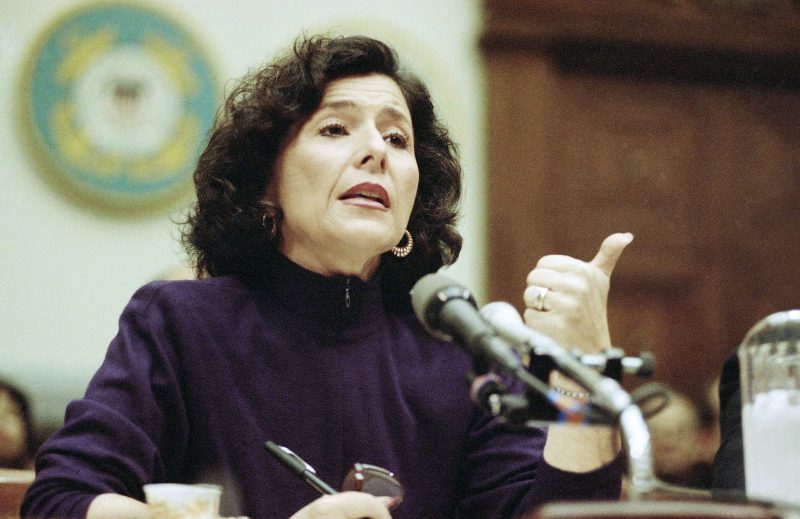
Weinstein began to make contributions to the Democratic Party in 1991, when he gave money to Sen. Barbara Boxer of California and Sen. Patrick Leahy of Vermont. Over the next few years, he gave relatively small amounts - all $2,000 or less - to Sens. Barbara Boxer and Diane Feinstein, along with several other Democratic senators. He also began giving to Democratic Party organizations for the first time, initially to the Democratic State Central Committee in California.
It was also during this period that Weinstein allegedly began to harass several of the women named in the New York Times report.
Weinstein began supporting the Clintons in the mid-1990s.
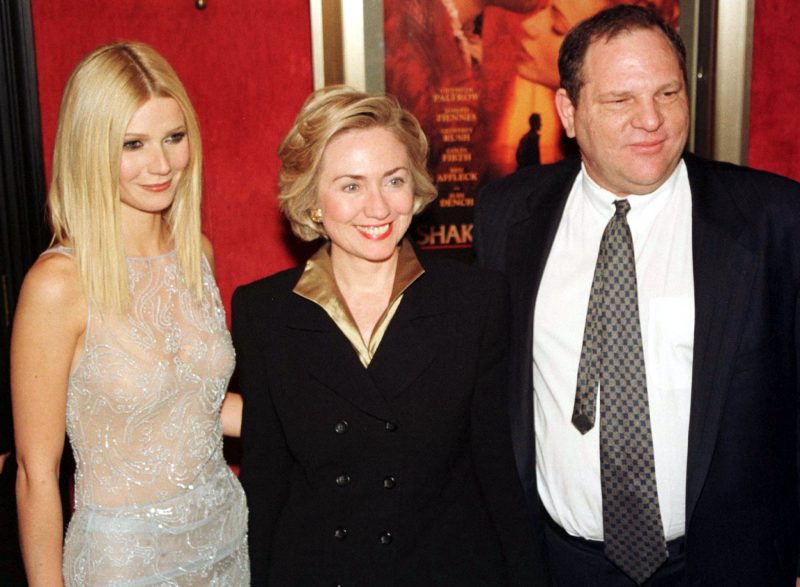
In the later half of the 1990s, Weinstein began donating to a broader set of politicians and doing so much more frequently ahead of the 1996 and 1998 elections. He also made his first contribution to the Clinton family at the start of Bill Clinton's re-election campaign in 1995 and made his largest donation up to that point in 1996 when he gave $10,000 to the Democratic National Committee Services Corporation.
As a result of his rapidly growing financial ties to the Democratic Party, he began appearing at events with Bill and Hillary Clinton and other party heavyweights like Sen. Chuck Schumer.
Weinstein invested both time and money to support the Democratic Party and Al Gore in the 2000 presidential election.
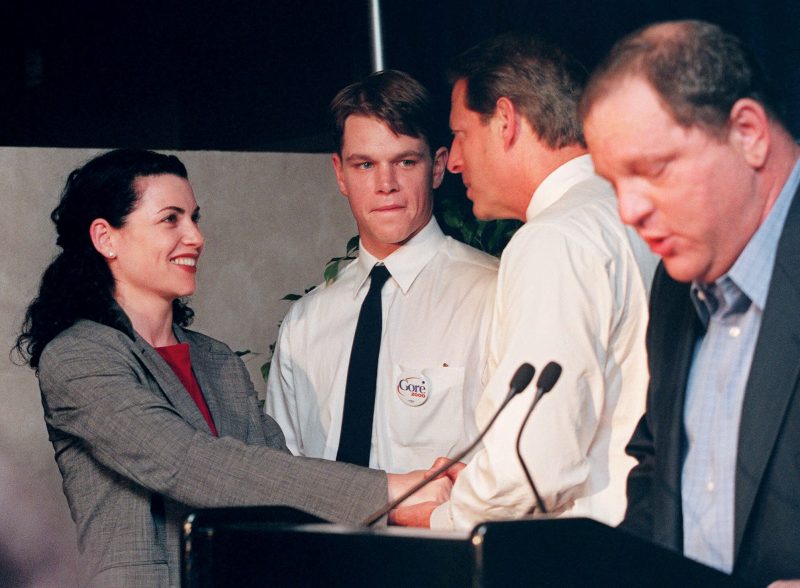
Although the Democrats lost that election, Weinstein continued to build close ties to the Clintons in the early- and mid-2000s.

In the early 2000s, Weinstein continued to contribute frequently to Democratic politicians across the country and contributed tens of thousands of dollars to the Democratic National Committee and the Democratic Senatorial Campaign Committee in 2002.
Weinstein became actively involved in promoting and supporting the Democratic legislative agenda.
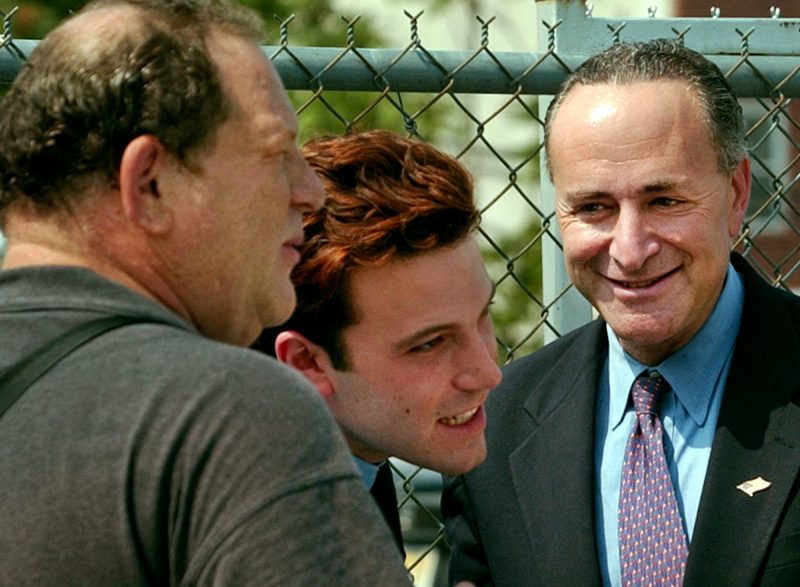
He expanded his contributions to include PACs and advocacy groups in the mid-2000s.
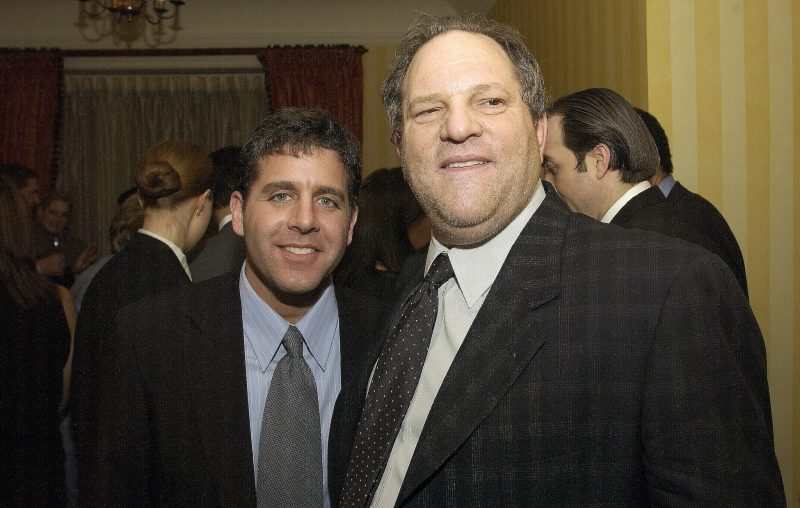
In the mid-2000s, during the 2004 and 2006 elections, Weinstein poured money into the coffers of congressional candidates, political action committees (PACs), and various liberal charitable causes. He also supported Hillary Clinton's 2004 Senate re-election campaign.
He also notably supported Al Franken's run for senate in Minnesota in 2007.
Weinstein's influence in Washington continued to grow in the early Obama years.
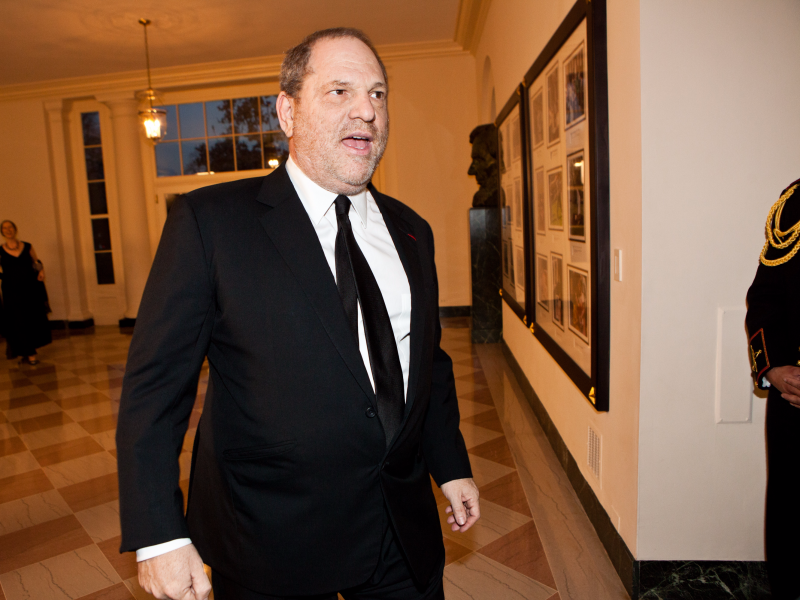
Throughout the late 2000s, Weinstein continued to support the Clintons, throwing his weight behind Hillary Clinton's presidential campaign in 2008. He contributed thousands of dollars to her PAC and her campaign.
But after Barack Obama beat Clinton in the Democratic primary in 2008 and went on to win the White House, Weinstein threw his weight behind him and appeared at public events with members of the first family.
Weinstein's individual political contributions grew larger and larger after the 2008 presidential election.
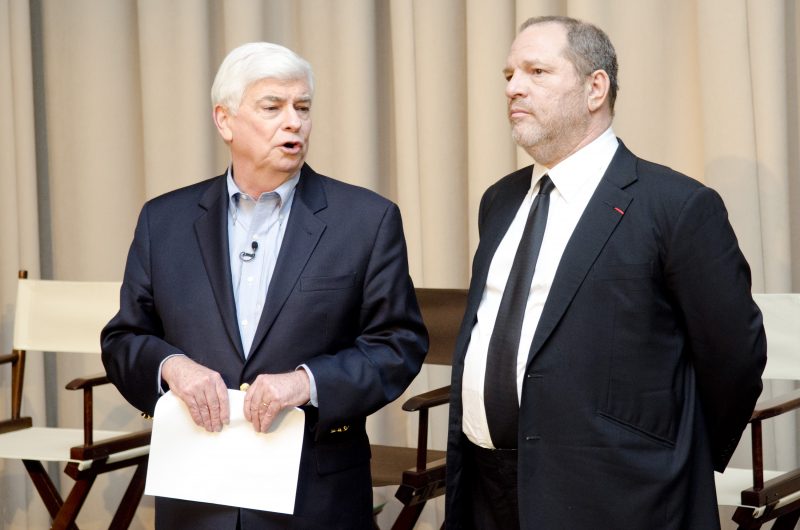
Weinstein supported Obama in his re-election campaign.
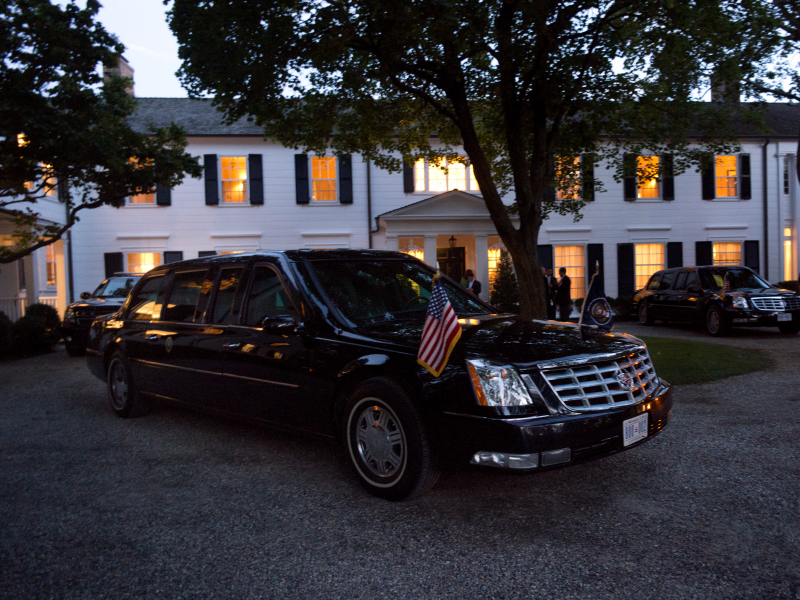
Weinstein contributed vast sums of money to Obama's reelection campaign in 2012. During this period he also began supporting progressive Democratic firebrands like now-Sens. Cory Booker and Elizabeth Warren.
Weinstein thrived as a financial donor under Obama.
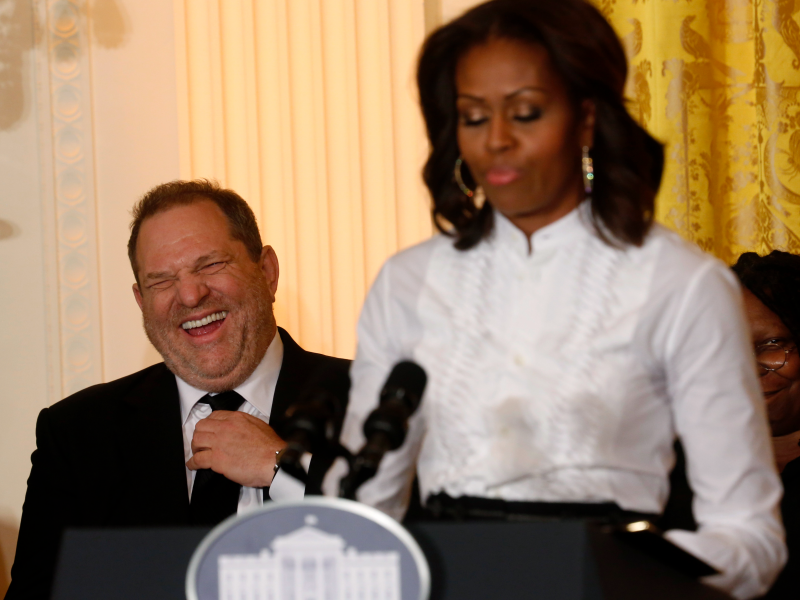
During Obama's term in office, Weinstein continued to support influential Democratic candidates like Sens. Al Franken and Chuck Schumer. He also gave his largest single contribution ever of $32,400 to the DNC in 2014.
Politicians continued to join Weinstein on red carpets and at galas.
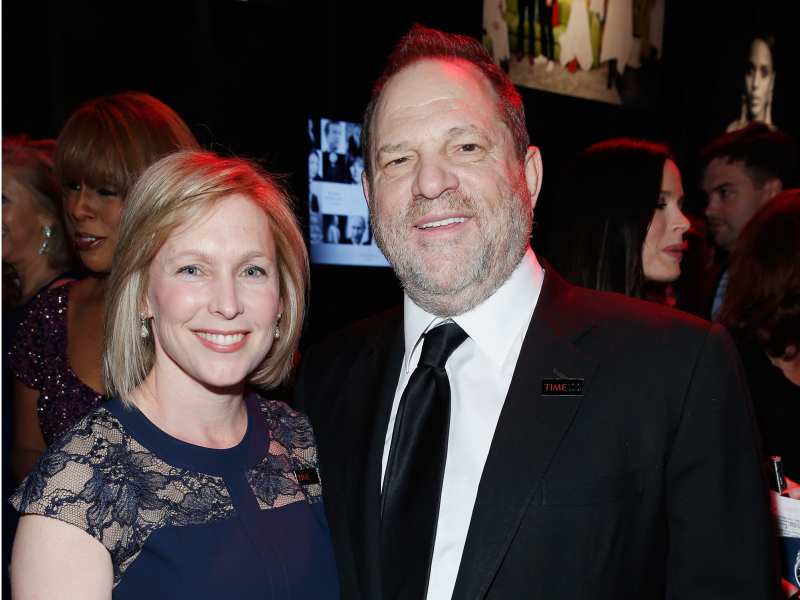
Weinstein was even honored with a cultural activism award from Harvard University's Hutchins Center for African and African American Research in 2014 when he received the W.E.B. Du Bois medal the same year as notable figures including Maya Angelou, Democratic Rep. John Lewis, and Oprah Winfrey.
Weinstein supported causes, backed by Democrats, that he felt would help the arts and advance the progressive agenda.
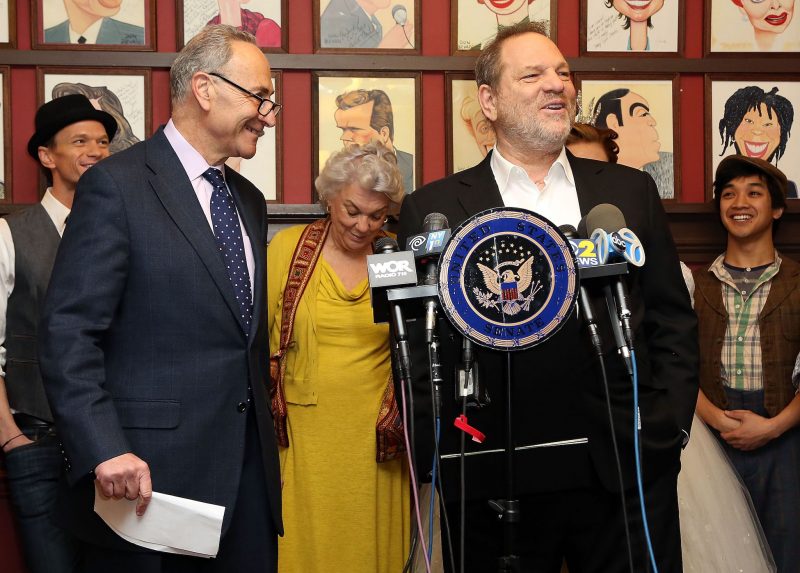
When the Times published a damning report in October 2017 on Weinstein's decade of misconduct, top Democrats who had ties to the producer were quick to condemn him.
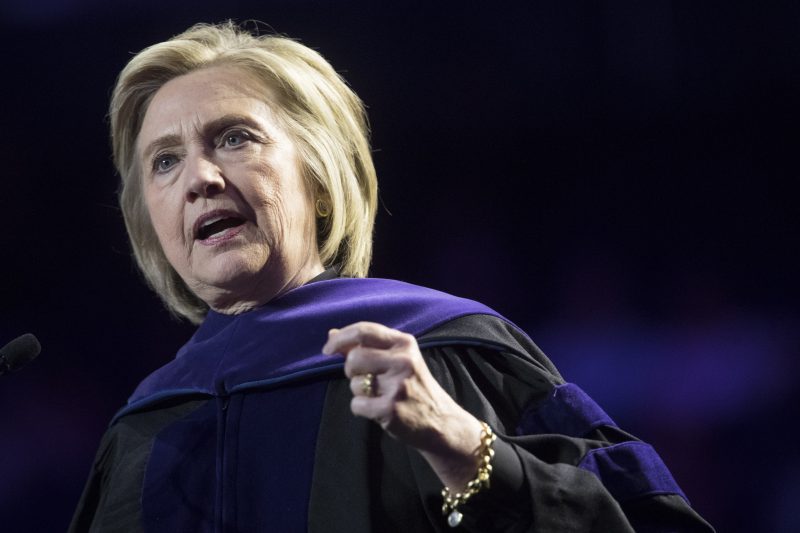
"I was shocked and appalled by the revelations about Harvey Weinstein. The behavior described by women coming forward cannot be tolerated," Hillary Clinton said in a statement days after the report was published before pledging to donate the $1.4 million he contributed to her 2016 presidential campaign to charity, according to Politico.
Politico reports that Obama, whose eldest daughter Malia interned with the Weinstein Company one year earlier, was under pressure for nearly five days to openly condemn Weinstein before he issued a statement saying he was "disgusted."
The initial allegations turned into a full-blown sexual harassment scandal, which raised concerns for active politicians who were supported by Weinstein.
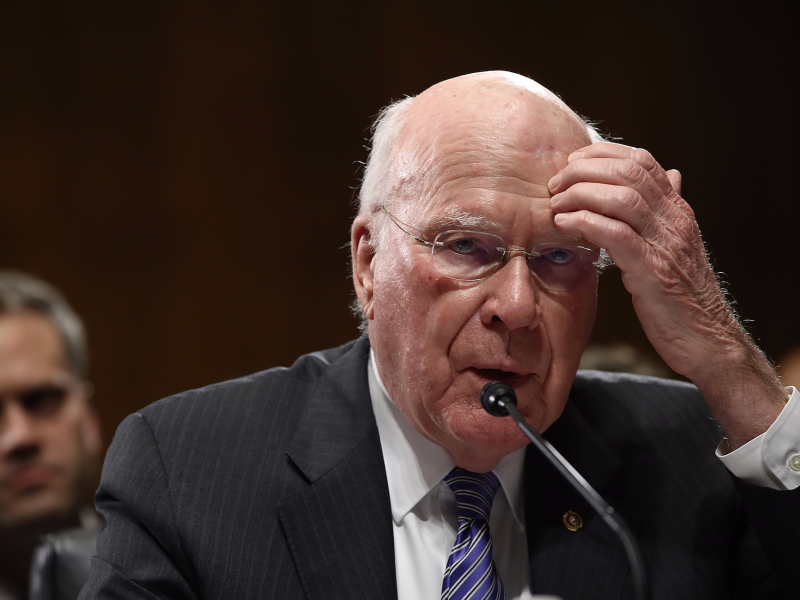
After years of building and consolidating his power among Democratic presidents, politicians, and organizations, Weinstein's influence began to dissipate after multiple sexual harassment and misconduct claims surfaced.
Shortly after initial reports of Weinstein's misconduct, numerous Democrats, like New York Gov. Andrew Cuomo, came under pressure to return donations he made to them. Sens. Patrick Leahy, Kamala Harris, Chuck Schumer, and Elizabeth Warren, were among the first to pledge to give away Weinstein's money to charities that are fighting for women's issues and against sexual violence.
The Democratic National Committee was heavily criticized for condemning Weinstein, but not committing to returning all of his contributions from over the years, as multiple reports noted the committee had been struggling for support since the 2016 US election.
The allegations against Weinstein rocked Hollywood and politics alike.

In addition to revealing the network of wealthy, elite figures in media and entertainment who become intertwined with politicians of their choice, Weinstein's case also set off a cultural movement that toppled lawmakers and dominated the conversation around President Donald Trump's administration.
The #MeToo hashtag was used on social media by actresses, lawmakers, and activists who spurred an open conversation about sexual harassment and misconduct that turned into in-person demonstrations in cities across the US.
In the year following initial allegations against Weinstein being brought to light, nine members of Congress announced they would be resigning or not running for re-election amid misconduct allegations.
- Read more:
- Harvey Weinstein says he has done more for women in Hollywood than any other filmmaker, and says rape accusations made him the 'forgotten man'
- A woman who works with sexual misconduct survivors says Harvey Weinstein's tentative $25 million settlement isn't surprising because victims are used to settling for 'less than what we deserve'
